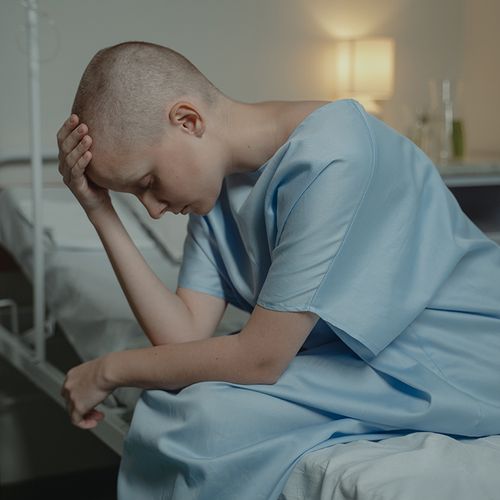Fasting, especially when combined with chemotherapy, appears to slow the growth of cancerous tumors in mice, recent research suggests.
Experts note that the results of animal studies often don't hold up when tried in humans.
However, researchers have started testing whether fasting can help human patients with breast, ovarian and urinary tract cancer.
In the mouse study, researchers found that fasting slowed the growth of breast cancer, melanoma, glioma and human neuroblastoma in mice.
In some cases, fasting was as effective as chemotherapy, according to the study.
"The combination of fasting cycles plus chemotherapy was either more or much more effective than chemo alone," said senior study author Valter Longo, PhD, professor of gerontology and biological sciences at the University of Southern California.
The study was published in the journal Science Translational Medicine.
How Fasting + Chemo Fights Cancer
Researchers said that normal cells deprived of nutrients during fasting enter a dormant state, whereas when studied in the lab, a type of cancer cell attempted to keep growing and dividing.
That, in turn, led to a "cascade of events that damaged the cancer cells' DNA and led to cell death.
"A way to beat cancer cells may not be to try to find drugs that kill them specifically but to confuse them by generating extreme environments, such as fasting, that only normal cells can quickly respond to," Dr. Longo concluded.
Human Trials
The study authors noted that results from the initial phase of a clinical trial, which involved patients with breast, urinary tract and ovarian cancer conducted at the USC Norris Comprehensive Cancer Center, were submitted for presentation at the annual meeting of the American Society of Cancer Oncologists. This trial tested the safety of short-term fasts two days before and one day after chemotherapy.
"We don't know whether in humans it's effective," Dr. Longo said. "But a patient should be able to go to his or her oncologist and say, 'What about fasting with chemotherapy?' or fasting without chemo, if chemotherapy was not recommended or considered."
Fasting Not For Everyone
The researchers warned that fasting may not be safe for all cancer patients, particularly those who have already lost a significant amount of weight or have other conditions, such as diabetes. They added that fasting can cause headaches and a drop in blood pressure. The study also pointed out that cancer-free survival resulting from fasting may not extend to large tumors.
According to the American Cancer Society, "available scientific evidence does not support claims that fasting is effective for preventing or treating cancer. Even a short-term fast can have negative health effects, while fasting for a longer time could cause serious health problems."
Tai Chi Improves Memory in Chemotherapy Patients
Cancer patients who undergo chemotherapy often suffer from memory loss and decreased verbal skills. University of Missouri psychologists found that women who had received chemotherapy had significant improvement in their cognitive abilities after participating in a one-hour tai chi class (held twice weekly for 10 weeks) compared with before taking the classes. It's likely that men would have a similar benefit.
